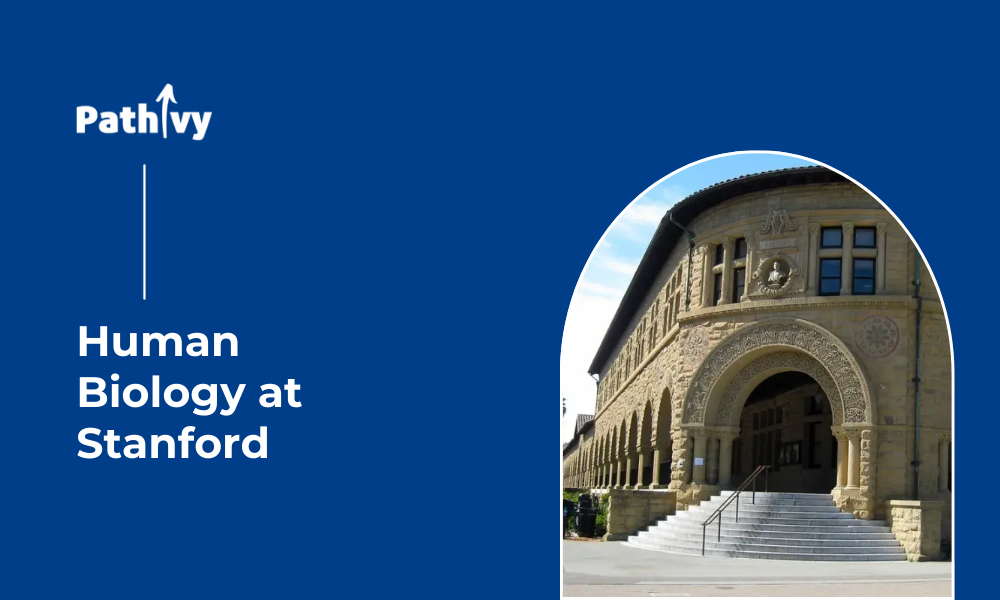What is Human Biology like at Stanford? How does one come to major in it?
My Application Process
I applied to colleges through the QuestBridge National College Match Program. Through this application, I list my choice of universities in order, and I get matched to one university that accepted me that was highest on my ranking. I ranked the following colleges in order: Yale, Stanford, Columbia, UPenn, Brown, and Rice. I got matched to Stanford - meaning Yale either deferred or rejected me. Any ranking beyond Stanford, I don’t know whether they accepted or not. Nonetheless, with the focus on majors, I will talk about how I expressed my interests in healthcare in my application and realized Stanford was the best place for me - major-wise. I was interested in going to medical school and learning more about healthcare policies with the hopes of working at the intersection of those fields. In a way, my goal was to connect the STEM-oriented knowledge of Biology with the Humanities side knowledge of policy. I came to realize that Human Biology was exactly this - an emphasis on both of these areas concurrently. While applying to colleges, I figured I would probably major in the hard sciences, and only take a couple of classes to learn more about healthcare in the United States. However, the Human Biology major wholly embodies the intersection of biology and healthcare policies; therefore, I felt as though it was a perfect fit for me.
Introduction to the Major
At Stanford, you do not have to apply to a major. When you get accepted to Stanford, you’re free to choose any major. There is no GPA, a specific SAT score, or pre-requisite class that you have to take in high school to major in Human Biology. The Human Biology Program is unique in comparison to other majors. Before declaring, the student needs to submit a Cornerstone Essay choosing an area of concentration and the list of courses that cater to the student’s long-term goals. This is unlike declaring any other major because it demands the student to not only mindlessly fulfill a given set of requirements, but instead allows the student to choose their own set of classes to fulfill their major requirement. This major allows the student to design their academic plans without restricting students with class requirements that they may not enjoy.

Requirements for the Human Biology Major
There are three requirements:
- Core Requirement
- HumBio Core Sequence - 2A/2B/3A/3B/4A/4B
- 1 Statistics Course
- 3 Upper Division Classes - HUMBIO 100s level
- Breadth Requirement
- 20 units of the chosen and approved area of concentration
- Depth Requirement
- 20 units of the chosen and approved area of concentration (non-introductory courses)
To browse for suitable courses relating to the degree requirement, see the following link: https://bulletin.stanford.edu/programs/HUMBI-BS
Area of Concentration in Human Biology
- Environment and Environmental Policy
- Health and Health policy
- Human Performance
- Human Development
- Biomedical & Biocomputational Sciences
- Brain & Behavior
- Ethics & Medical Humanities
- Evolution
To learn more about the classes that abide by these areas of concentration, see the following link
Job Prospects
I browsed through the Stanford alumni directory and found the following professions to be most common for a Human Biology degree from Stanford:
- Resident Physician
- Cardiology Fellow
- Professor
- Medical Student
- Research Assistant
- Healthcare Tech & Operations
My Experience with Human Biology
A notable extracurricular is doing an independent study for HumBio credit. For example, during my sophomore year, I’m working at the VA Palo Alto Health Care System in a lab that counts for a Hum Bio Independent Study credit. There are many opportunities to pursue such independent studies, and for more information, students can always make an appointment with the Human Biology course staff to discuss options for an independent study. In addition to the independent study, there’s also an opportunity to earn honors by writing a thesis.
For students interested in majoring in Biology related subjects, it is difficult to decide whether to major in Biology or Human Biology. The core difference between these two majors is that Biology is solely focused on the hard sciences, whereas Human Biology approaches the hard sciences in a humanistic way by also considering social implications. For example, in a Biology major, the classes will revolve around only Biology - genetics, molecular biology, etc. Whereas in the Human Biology major, the students are required to take a pair of classes that combine the hard sciences and the social aspect of that science. For example, it is common for a sophomore to take Human Biology 2A and Human Biology 2B their fall quarter. HumBio 2A is named Genetics, Evolution, and Ecology, the hard science component of the requirement. HumBio 2B is named Culture, Evolution, and Society, the class that talks about the content in 2A in a more humanistic manner. This similarity is seen in other Human Biology classes as well. The Human Biology Core requirements are classes that are taken in pairs because the B portion complements the hard science A portion of the core. Personally, while I’m interested in medicine, I think it is equally important to understand the social and cultural ramifications of the science we are utilizing. For this reason, the Human Biology major drew me more than Biology. This social approach to science is also important to understand for aspiring doctors or people who want to work in healthcare, therefore Human Biology is also the most popular major among pre-medical students.
Additionally, in the Biology major, there’s a list of classes to be completed as a major requirement (like many other majors), however for Human Biology, there isn’t a list of required classes. The student simply chooses their area of concentration and chooses the classes that will help that student reach their learning goals. As long as their course study is approved by the Human Biology staff, the students aren’t obliged to take classes they don’t enjoy simply to complete a major requirement. Because the course that counts for the major requirement is flexible, pre-med students often find ways to incorporate their pre-med required courses into their major requirements. This way, they aren’t burdened by trying to complete their pre-med requirements as well as another set of major requirements. For such reasons, I decided to take Human Biology. If the message and this goal of the Human Biology department to integer hard sciences through a social sense resonates with you, then Human Biology will be a good fit for you.
Written by Akriti Dhungana, PathIvy Stanford Ambassador
.png?width=175&height=73&name=ORIGINAL%20LOGO%20Blue%20and%20Green%20(1).png)
.png?width=50&name=author-image%20(2).png)

